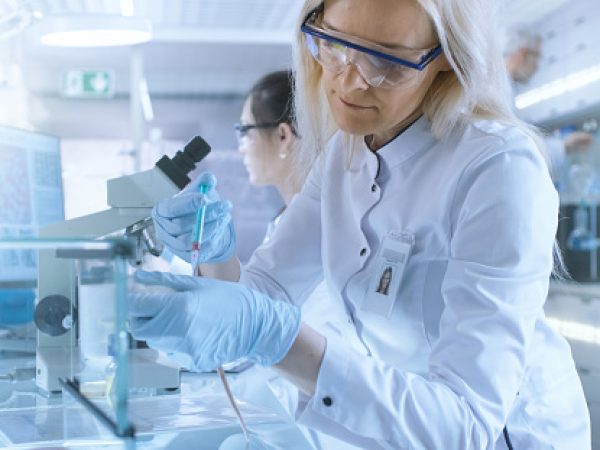How Will Artificial Intelligence Change Cancer Care?
Guest Post by William G. Nelson, MD, PhD, Editor-in-Chief, Cancer Today
The artificial intelligence (AI) revolution has important implications for all of medicine, and especially for precision cancer care. The first wave of medical AI tools has impacted technologies like mammography and CT scans used in radiographic imaging and microscopy used to examine tissue biopsies and surgical resection specimens.
Statistical and machine-learning algorithms, including neural networks and layers of neural networks termed “deep learning,” have allowed increasingly refined pattern recognition and classification. When applied to medical imaging and diagnostic pathology, these types of image analyses can aid in cancer detection and diagnosis, and in determining cancer aggressiveness. Advances in radiographic image acquisition and pathology slide scanning—leading to much larger amounts of data collected—are making AI-aided interpretations increasingly essential.

Historically, radiologists gazed at X-ray pictures and pathologists looked through microscopes. Both used their eyes to resolve features and their brain to recognize patterns from the lower-resolution images obtained through these methods. However, technological advances have increased the resolution and data richness of the images, producing vast amounts of data beyond what the human eye and brain can process, making AI-based assistance invaluable.
The basic strategy used for building AI tools to aid radiology and pathology is to “train” a computer algorithm using a large collection of image files from cases with known outcomes, such as cancer versus noncancer, aggressive cancer versus nonaggressive cancer, and so on, and then to validate the algorithm using a second set of cases. Subsequently, the algorithm can continue to improve as it analyzes more image files.
These approaches will quickly work their way into common clinical practice. In 2021, the U.S. Food and Drug Administration released an Artificial Intelligence/Machine Learning Action Plan, anticipating a wave of device applications featuring computer-aided approaches to a wide variety of medical indications. By October 2022, 521 approvals of AI-aided medical devices had been made.
So far, AI has not replaced expert radiologists or pathologists. Rather, the refined classification capabilities have been used to direct the human eye to critical image features. Will this improve precision cancer medicine by evolving into a more highly functioning human-machine interface? As the noted sage Yogi Berra once pointed out, “It’s tough to make predictions, especially about the future.”
William G. Nelson, MD, PhD, is the editor-in-chief of Cancer Today, the quarterly magazine for cancer patients, survivors, and caregivers published by the American Association for Cancer Research. Nelson is the Marion I. Knott professor of oncology and director of the Sidney Kimmel Comprehensive Cancer Center at Johns Hopkins in Baltimore. You can read his complete column in the summer 2023 issue of Cancer Today.



